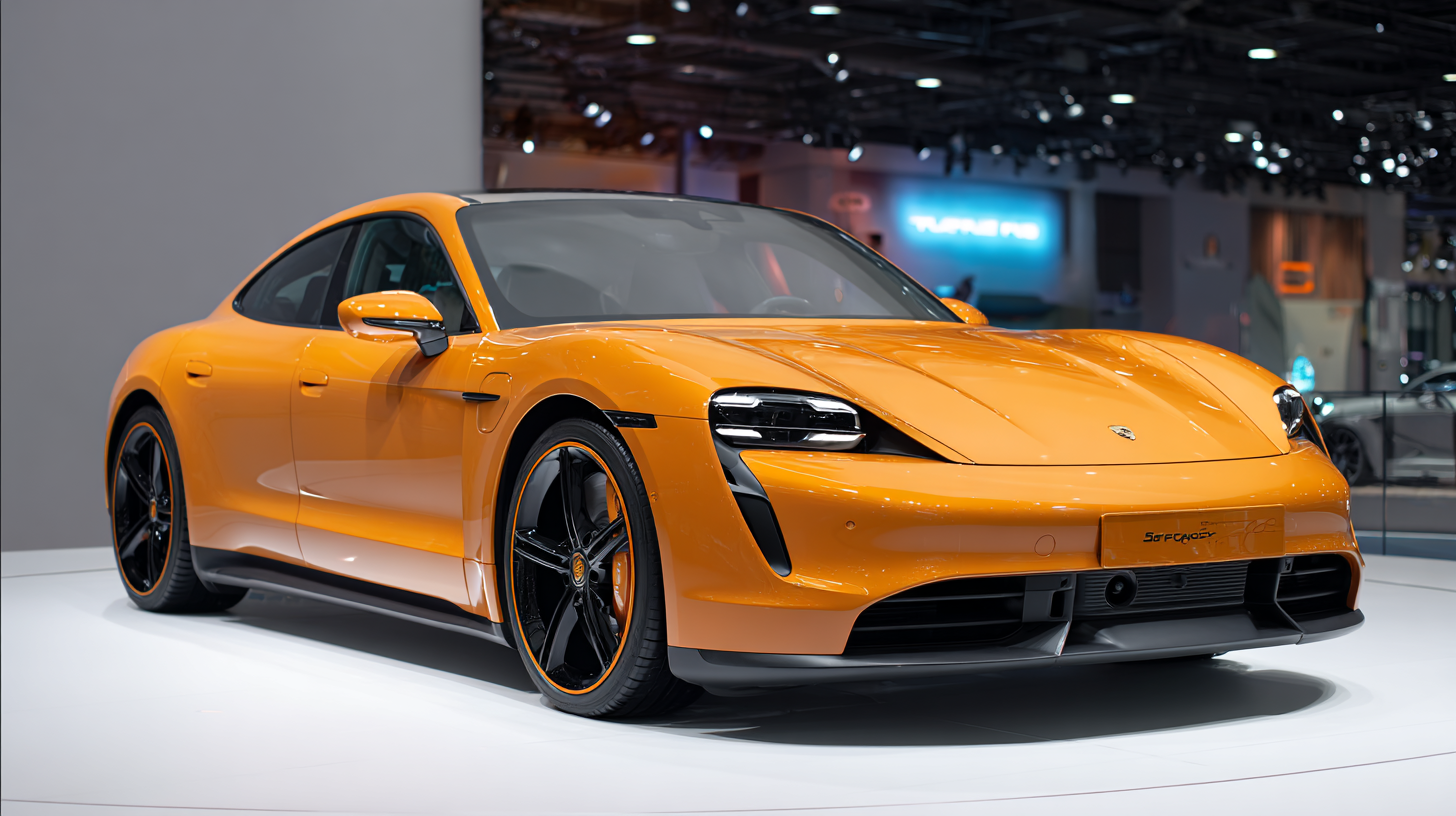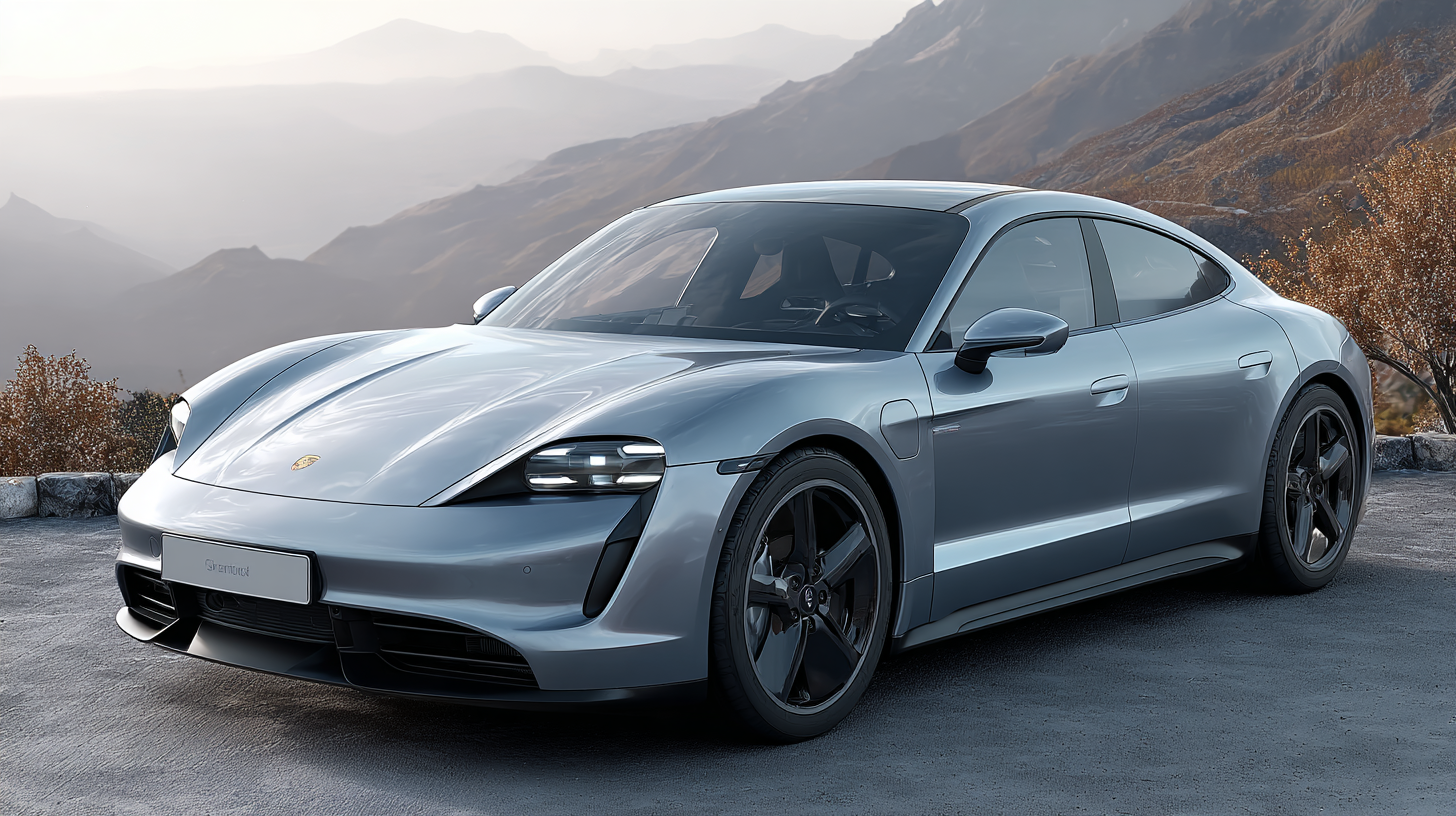Sorry. We did not find anything.
Ultimate Checklist for the Best New Electric Cars You Need to Know in 2023
The automotive industry is undergoing a significant transformation with the rise of new electric cars, which are projected to dominate the market in the coming years. According to a report by the International Energy Agency, global electric vehicle sales reached over 6.6 million units in 2021, marking a remarkable 108% increase from the previous year. This trend is expected to continue, with experts forecasting that electric vehicles will account for 25% of all car sales by 2030. As manufacturers invest heavily in new electric car technology, it's essential for consumers to stay informed about the latest models and innovations. This ultimate checklist aims to provide insights into the best new electric cars available in 2023, highlighting essential features, pricing, and the impact of these vehicles on both the environment and the market.

Key Trends Shaping the Electric Car Market in 2023 and Beyond
As the electric vehicle (EV) market evolves in 2023, key trends are emerging that are reshaping the landscape. The global market for electric vehicle battery boxes is projected to grow significantly, from a valuation of $1.953 billion in 2023 to $2.533 billion in 2024, eventually reaching an astounding $18.768 billion by 2032. This surge indicates not just an increase in demand for EVs, but also a shift towards more efficient and sustainable battery technologies as the world moves towards carbon neutrality.
The rise of new energy vehicles (NEVs) is increasingly recognized as crucial for achieving this goal. Supported by government initiatives and a growing public consciousness about environmental protection, the automotive industry is witnessing profound transformations. In 2023, global electric vehicle sales have exceeded previous milestones, marking a turning point for manufacturers to adapt their supply chains and production strategies. As the industry embraces innovative technologies, the focus on sustainability and efficiency will guide future developments, ensuring a robust and dynamic market for electric vehicles in the years to come.
Electric Vehicle (EV) Sales Growth by Segment in 2023
Top Electric Car Models to Look Out for in 2023
As we dive into 2023, the electric vehicle (EV) market continues to evolve rapidly, with several standout models poised to capture consumers' attention. Notable mentions this year include the Tesla Model Y, which is projected to maintain its popularity due to its impressive range of up to 330 miles and robust performance, making it a top choice in the compact SUV segment. Furthermore, the Ford Mustang Mach-E has garnered acclaim, offering a blend of performance and practicality with an EPA-estimated range of up to 312 miles, showcasing the shift towards electrification in traditional automotive brands.

Another model to watch is the Hyundai Ioniq 6, which has gained attention for its aerodynamic design and efficient powertrain. According to a recent report from the International Energy Agency, global EV sales are expected to reach over 20 million units by 2025, highlighting the increasing consumer interest in sustainable transport options. This trend is further fueled by government incentives and advancements in battery technology.
Tips for choosing the best electric car this year: Consider your driving habits and charging access; a longer range might be essential for frequent long-distance drives. Additionally, stay informed about ongoing software updates, as many manufacturers offer features that enhance performance post-purchase. Lastly, look for models with comprehensive warranty options, as they can provide peace of mind regarding the longevity and reliability of your new electric vehicle.
Understanding the Technological Innovations Driving Electric Vehicles
The landscape of electric vehicles (EVs) has evolved dramatically in 2023, largely driven by groundbreaking technological innovations. One of the most significant advancements is the emergence of solid-state batteries, which promise to enhance energy density, reduce charging times, and improve overall vehicle safety. Unlike traditional lithium-ion batteries, solid-state batteries utilize a solid electrolyte, which not only increases efficiency but also minimizes the risk of thermal runaway, a common issue in conventional battery systems. This shift is set to revolutionize the range and performance of new electric cars, making them more appealing to a broader audience.
Additionally, cutting-edge developments in autonomous driving technology are transforming the EV experience. Enhanced sensor systems and sophisticated machine learning algorithms enable vehicles to navigate complex environments with minimal human input. Companies are investing heavily in software updates that improve driving performance and safety over time, allowing vehicles to learn from every journey. These innovations underscore the commitment of manufacturers to not only create eco-friendly vehicles but also to redefine how we interact with cars, ensuring that the future of driving is both intelligent and sustainable. As we progress through 2023, it’s clear that the fusion of these technologies is ushering in a new era for electric vehicles.
Ultimate Checklist for the Best New Electric Cars You Need to Know in 2023 - Understanding the Technological Innovations Driving Electric Vehicles
| Model | Range (miles) | Charging Time (hours) | Battery Capacity (kWh) | Innovative Features |
|---|---|---|---|---|
| Electric Sportster | 250 | 0.5 | 75 | Autonomous Driving, Smart Navigation |
| Eco Hatchback | 300 | 4 | 80 | Vehicle-to-Grid Technology, Over-the-Air Updates |
| Family SUV | 280 | 1.5 | 90 | Advanced Safety Systems, AI-Powered Assistance |
| Luxury Sedan | 350 | 1 | 100 | Screen Projection, Augmented Reality Dashboard |
| Compact City Car | 200 | 2 | 50 | Parking Assistance, Smart Integration |
Economic Factors Influencing Electric Vehicle Adoption in 2023
The adoption of electric vehicles (EVs) in 2023 is heavily influenced by several economic factors that shape consumer behavior and market trends. According to the International Energy Agency (IEA), global sales of electric cars surged to over 10 million in 2022, driven by falling battery costs and increased consumer awareness about climate change. In 2023, the average cost of battery packs has dropped to around $130 per kilowatt-hour, which significantly contributes to making electric cars more affordable and attractive to the average consumer.

Government incentives play a crucial role in EV adoption as well. Many countries, including the United States and several European nations, offer substantial tax credits and rebates for electric vehicle purchases. For instance, the U.S. federal tax credit can provide up to $7,500 for eligible electric vehicles, encouraging more consumers to consider switching from traditional internal combustion engine vehicles. Furthermore, the rising cost of gasoline, with average prices reaching $4.50 per gallon in some regions, makes driving an electric vehicle economically favorable in the long term. As these economic dynamics continue to evolve, they will undoubtedly accelerate the transition to electric mobility in 2023 and beyond.
Consumer Preferences and Expectations for Future Electric Cars
Consumer preferences for electric vehicles (EVs) in 2023 reveal a complex landscape shaped by both enthusiasm for sustainable technology and significant concerns regarding infrastructure. A recent report from the EY Global Mobility Consumer Index highlights that while global demand for EVs is projected to rise, a slow down has emerged due to consumer apprehension over insufficient charging networks. This sentiment reflects a crucial hesitation among potential buyers, where the availability of charging stations is a primary barrier to adoption. Understanding these concerns is vital as the market evolves, especially as the propulsion segment of Battery Electric Vehicles (BEVs) is estimated to reach $409.9 billion by 2030, driven by a compound annual growth rate (CAGR) of 17.2%.
Moreover, a study by McKinsey underscores the importance of consumer attitudes towards charging solutions, with preferences for convenience and accessibility becoming pivotal. As more consumers express a willingness to consider electric cars, evidenced by a rising interest in EVs in various markets, the shift towards hybrid models has been noticeable. In India, for instance, over 70% of tier-one car consumers are open to EV adoption, yet hybrid vehicles are gaining traction as an intermediate solution. As the automotive industry adapts to these changing preferences, the focus on innovative charging solutions and the expansion of infrastructure will play a critical role in shaping the future of electric mobility.
